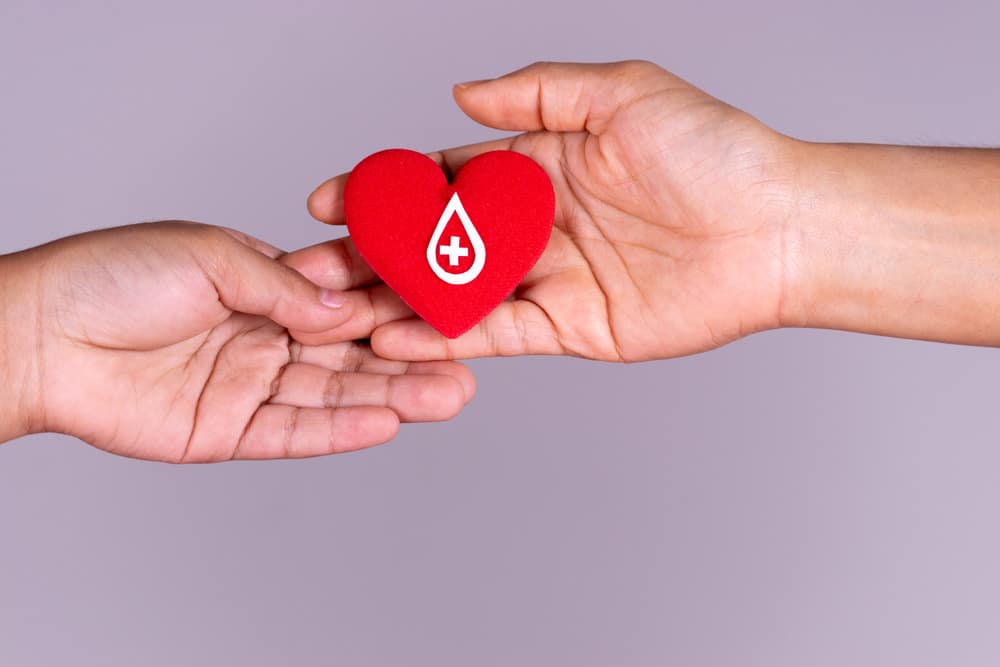We know the paramount significance blood holds in our existence. It is the life force that sustains us, flowing through our veins like a river of vitality. It carries the secrets of our health, reflecting our well-being and resilience. But what if this scarlet liquid of life runs short of supply for us? What if your vital organs are all in perfect health but this medium that transports oxygen and other nutrients to them is incapable of doing so? Scary, right? As per reports, nearly twelve thousand people die every day in India due to a shortage of blood. Another report shows that India collects around 11 million units of blood per year and needs around 15 million. To put it simply, the blood demand in our country outstrips supply by over 400 per cent.
But what if I say you can contribute to saving lives and support in bringing this number down through a simple yet one of the noblest deeds of blood donation? But, before you proceed, wait, what’s your sexual orientation and gender? Wondering what that has to do with blood donation? This article will explain.
Through this article, we aim to enlighten people on the importance of blood donation and its health benefits for donors. We will also discuss the global perspectives on LGBTQ+ blood donation and guidelines in different countries regarding LGBTQ+ blood donation in view of Indian policies.
World Blood Donors Day: A Brief History
The first World Blood Donor Day was observed in 2004, which was followed by its designation as an annual global event by the fifty-eighth World Health Assembly in 2005. The day is now annually celebrated throughout the world on 14 June to raise awareness about blood donation and recognise the contribution of voluntary blood donors in saving lives.
Wondering what significance the date holds? June 14 is the birthday of Karl Landsteiner, an Austrian biologist and physician regarded as the founder of modern blood transfusion. Landsteiner developed the modern system of classification of blood groups and identified the Rhesus factor, which enables physicians to transfuse blood without endangering a patient’s life.
Importance Of Blood Donation
Blood donation holds immense importance for several reasons:
1. Saving Lives
Other than being just noble, donated blood is employed to be used in medical procedures, surgeries, and treatments for patients suffering from various conditions such as injuries, cancer, blood disorders, complications during childbirth and anaemia. Accidents and natural disasters can also cause significant blood loss in the survivors and create an urgent need for blood transfusions. By donating blood, individuals can directly contribute to saving someone else’s life.
2. Meeting Medical Demand
Blood transfusions are performed daily in hospitals and medical facilities to address emergencies and provide essential treatments. This means there is a constant need for blood in healthcare systems. Regular blood donations help maintain a sufficient and readily available blood supply to meet these medical demands.
3. Supporting Medical Procedures
Many medical procedures, such as organ transplants, surgeries, and chemotherapy, require blood transfusions to replace blood loss and support the recovery process. Blood donation plays a vital role in enabling these procedures and improving the chances of successful outcomes for patients. Furthermore, patients with chronic conditions, such as thalassemia and sickle cell disease, often require lifelong blood transfusions to manage their conditions. Regular blood donations are necessary to provide them with the necessary blood components and enhance their quality of life.
4. Advancing Medical Research
Donated blood is also essential for medical research and advancements. It enables scientists and researchers to study blood-related diseases, develop new treatments, and improve healthcare practices.
5. Community Support and Unity
Blood donations foster a sense of community support and unity. It brings people together from diverse backgrounds and encourages compassion and solidarity. By donating blood, individuals actively contribute to the well-being of their communities and make a positive impact on society.
Health Benefits Of Donating Blood
Donating blood not only benefits those in need but also offers several health benefits for the donors themselves. Here are some of the potential health benefits of donating blood:
1. Reduced Iron Overload
Excess iron in the body can lead to a condition called hemochromatosis, which can cause organ damage. Regular blood donation helps prevent iron overload and reduces the risk of developing hemochromatosis.
2. Cardiovascular Health
Regular blood donation helps maintain healthy iron levels in the body. Excessive iron buildup can increase the risk of heart disease. By donating blood, individuals can reduce their iron stores and potentially lower the risk of cardiovascular issues.
3. Reduced Cancer Risk
High iron levels in the body have been associated with an increased risk of cancer. Blood donation helps reduce iron stores, which may lower the risk of developing certain types of cancers, such as liver, lung, and colorectal cancer.
4. Improved Blood Flow
Blood donation stimulates the production of new blood cells. This process helps maintain the viscosity of blood, preventing it from becoming too thick and improving blood flow. Proper blood flow is essential for overall cardiovascular health.
5. Enhanced Red Blood Cell Production
After donating blood, the body replenishes the lost blood by producing new red blood cells. This process stimulates the bone marrow, promoting the production of fresh, healthy red blood cells. It can help maintain the optimal functioning of the circulatory system.
6. Health Check-Up
Before donating blood, donors undergo a thorough screening process, including tests for blood pressure, haemoglobin levels, infectious diseases, and other health indicators. This health check-up provides an opportunity to identify potential health issues or abnormalities that require medical attention.
7. Improved Emotional Well-being
Donating blood is a selfless act that contributes to the well-being of others. The act of giving can evoke positive emotions, a sense of purpose, and fulfilment, which can positively impact mental and emotional well-being.

Blood Donation: For All. By All?
Historically speaking, some sections of society have been barred from donating blood based on their sexual orientation and gender. The supporters advocate that this ban is based on the risk of high infection caused during blood transfusions. To put it simply, transgenders, men engaging in same sex intercourse and female sex workers are the three most prominent groups that were banned from donating blood across the globe. The ban on gay and transgender people donating blood was introduced in the 1980s when information on detecting and transmitting HIV/AIDS was less advanced. At that time, people were not fully aware of the modes of transmission of the virus, and there was no reliable test to detect HIV in blood donations. The fear of HIV transmission led to the exclusion of gay and transgender people from donating blood in many countries.
However, various countries have now revised their policies to be more inclusive and updated the screening process that’s similar for all irrespective of their sexuality. Let’s take a look at a few examples:
The United States
In January the US government announced its plans to revise the long-standing blood donation policy. Under the guidelines, gay and bisexual men in monogamous relationships would be allowed to donate blood. With the updated guidelines, most gay and bisexual men who are in a monogamous relationship with a man will no longer have to wait more than three months post-sex to donate blood.
Canada
As per the new rules, donors will be asked if they have had new or multiple sexual partners in the previous months, no matter their gender or sexual orientation. Those who say yes will be asked if they have engaged in ‘higher-risk’ sex. If they have, they will need to wait three months before donating blood.
United Kingdom
The country’s health agency announced that healthy people of any gender or sexual orientation who have had the same sexual partner for at least three months are eligible for blood donation.
Israel
The new rules state that all blood donors irrespective of their sexual orientation will have to wait three months ‘after high-risk sex with a new partner or multiple partners’.
France
France in 2022 ended its ban on gay men giving blood and stated that gay men would be able to donate blood under the same conditions as heterosexuals, without any reference to sexual orientation or period of sexual abstinence.
The policy revisions reflect progress in human rights, as they promote equality and non-discrimination. They challenge the stigmatisation and stereotyping of LGBTQ individuals and acknowledge that sexual orientation alone should not determine eligibility for blood donation.
But what about India? Where do we stand on the global platform when it comes to blood donation criteria? Let’s dig deep.
Blood Donation In India
India has had a blanket ban on blood donation by transgenders, men engaging in same-sex intercourse and female sex workers for decades. The argument that these categories are at a higher risk of HIV AIDS, Hepatitis-B and Hepatitis-C infections are shielded by clauses 12 and 51 of Guideline on Blood Donor Selection and Blood Donor Referral, 2017.
However, the constitutional validity of guidelines restricting particular groups was challenged by transgender activist Santa Khurai in the Supreme Court. She and her supporters believe that “permanently prohibiting transgenders, men having sex with men and female sex workers from donating blood solely on the basis of their gender identity and sexual orientation is arbitrary, unreasonable and discriminatory”. They are of the opinion that if anyone wants to donate blood, the government should provide facilities and guidelines to screen the blood before taking it. “The government cannot target a group or individual based on their sexuality or occupation”, says Khurai.
The government contends that the guidelines are based on “scientific evidence”. Citing eight national and international studies and an annual report from 2020-21 of the Department of Health and Family Welfare, the government defended its stand that “the HIV prevalence among transgenders, men who have sex with men and female sex workers is 6 to 13 times higher than adult HIV prevalence”.
With these rebuttals, a few questions remain unanswered. Let me walk you through them!
- What about transgenders who are not sex workers? This can apply to both transmen and transwomen.
- What about cis-heterosexual men who are married but have sex on the side with other men and may not report such behaviour while counselling?
- What about cis-heterosexual men who have ‘high-risk sex’ with sex workers?
The Road Ahead
Can India gain some insight from countries that have adopted evidence-based risk assessment models instead of blanket restrictions based on sexual orientation? Implementing scientifically informed criteria can ensure a safe blood supply while including LGBTQ individuals who are low-risk. Using its potential to engage with LGBTQ organisations and communities can be crucial for understanding their perspectives, concerns, and experiences.
India as a country could make collaborative efforts that may lead to more inclusive policies and better community trust. Continual monitoring and evaluation of policy changes are essential to assess their effectiveness, address any unintended consequences, and make necessary adjustments. Regular data collection and analysis can inform evidence-based decision-making and improve the inclusivity of blood donation policies.
Blood is the essence of compassion, as it has the power to bring life and hope to those in need. It connects us all, intertwining our destinies and reminding us of our shared humanity. With this thought in our minds and the level of medical advancements, we ask you, readers, what do you stand for? In a world that’s already divided among so many groups and strata with thriving marginalisation, what’s your take on the current policies in our country on blood donation? Remember, a single pint can save three lives, and a single gesture can create a million smiles.


